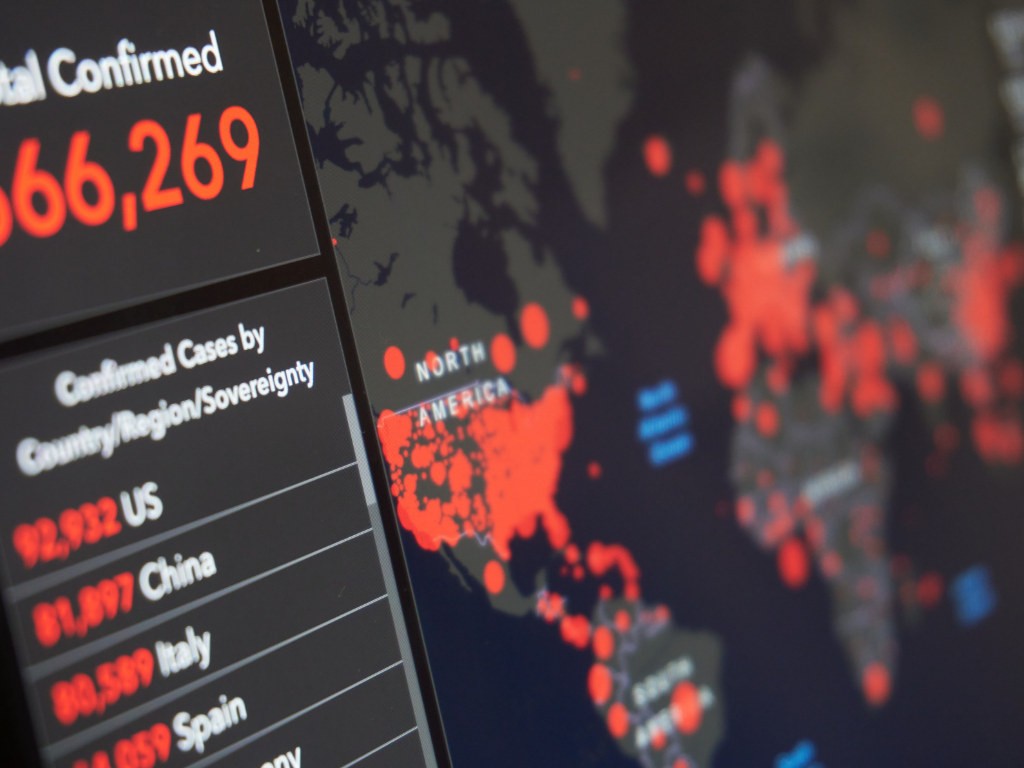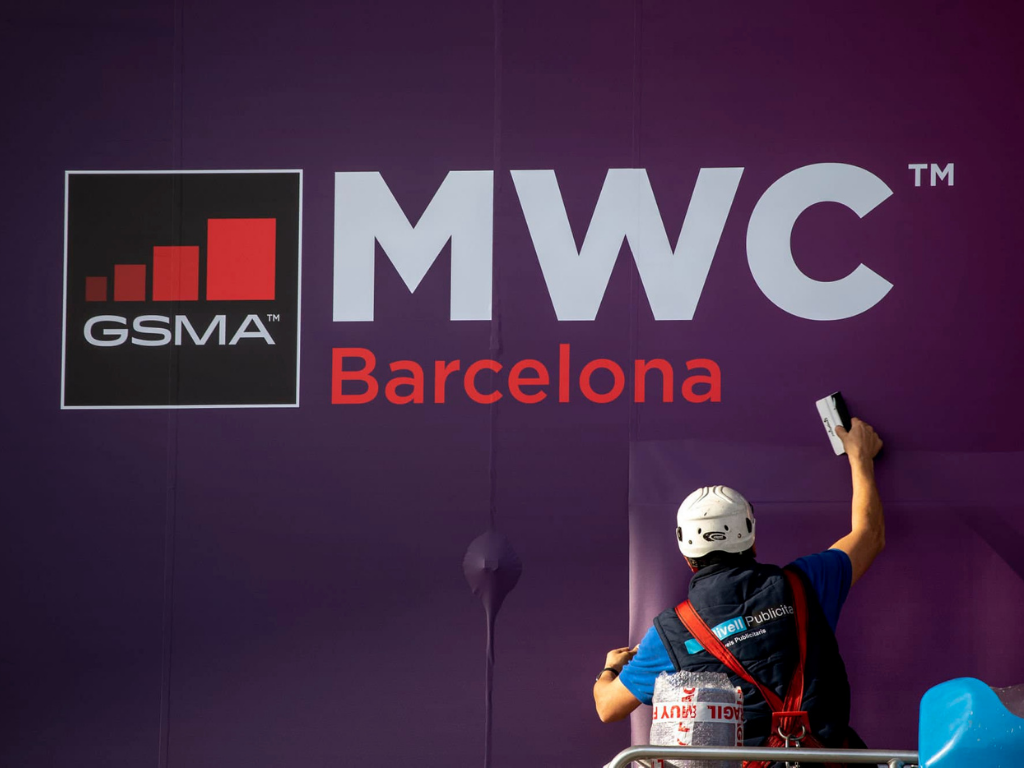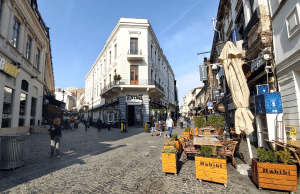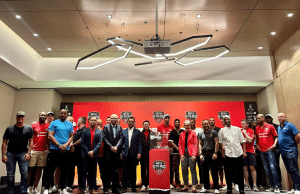DEFINITION
A CRISIS is any situation that can have an impact on trust in event organising in the long-term or prevents classic forms of organising. CRISIS MANAGEMENT, on the other hand, is a process made up of individual steps that enable effective decision-making and communication after a crisis occurs. A crisis can also become a DISASTER when such conditions arise that they affect everyday life and change the very fabric of society. The corona crisis is perhaps the best example of an absolute catastrophe.
THE STARTING POINT
Until recently, the meetings industry has chiefly tackled minor crises. Lately, those did occur were mostly connected with terrorist attacks. The COVID-19 catastrophe, conversely, changed modern society to its very roots. It has demanded that both the meetings industry and everyone else work together in solidarity and offer each other help. The most meaningful part of handling a crisis is CRISIS COMMUNICATION. The purpose of this is to maintain and regain trust in event organisers and event participants. Unfortunately, we have not learned much from past crises, and the corona crisis is perhaps a new opportunity. The vast majority of congress destinations should approach this problem very seriously, as the aspect of safety will be among the key criteria for choosing destinations in the future.
THE CONCEPT
I thoroughly recommend reading the book of the late Rok Klančnik on crisis communication titled: Crisis Management, Danger Management and Crisis Communication in Tourism (unfortunately, the book was published only in Slovenian). Above all, the author recommends that all destination organisations and event organisers create a plan for crisis management and communication. How many destinations and organisers actually have such a plan?
In the author’s opinion, the role of the public relations manager is crucial. A well-informed and charismatic person can entirely change the perception of a destination. Most commonly, this is the director of the congress bureau him- or herself, the project director or another person who is appreciated and recognised by the international community. Their communication must be swift and prompt and more importantly, charismatic and sincere. The market will immediately feel whether particular PR messages are farfetched, false or exaggerated. The media and congress participants should be informed of the safety conditions of a destination correctly and equitably. Honesty and transparency are the basis for credibility. In the current situation where we are faced with hyperinflation of information, this is more relevant than ever before. Intriguingly, to this day, I do not know of a destination that has opened a freephone number for worried congress organisers and participants during the corona crisis. With events, it is even rarer.
During the pandemic, extreme empathy is needed. Moreover, an understanding of the situation that the focus group of event organisers have found themselves in – these are event organisers and event participants:
– they have lost clients, cancelled or postponed events and lost income
– their psychological condition is bad (worrying over the future)
– the market has changed (everybody is counting on the second half of 2021)
– the forms of event organising will change (health precautions, insurance, work agreements)
We must approach them, understand their problem and anticipate their actions. In these challenging and confusing times, we must offer them help. Our entire communication has to adapt to the situation. It is important to acknowledge that the entire situation brings uncertainty and much is unknown to us. The worst thing you can do is to pretend that people are not scared when they are.

TIPS AND TOOLS
Without a doubt, the meetings industry is very vulnerable and has experienced several negative events in the past. Nevertheless, in Slovenia at the end of February, we were certain that the corona crisis could not happen to us. Time showed just how very foolish we were and how dependent we are on each other.
Due to thinking alike, all around the world, the crisis struck the majority of destinations and congress providers unprepared. Only a few had a crisis management plan in place. Every company and organiser has to play through its communication scenario. There is no “one size fits all” solution. Nonetheless, based on our experience, we have gathered suggestions and ideas on how to survive in the time of the biggest crisis the congress industry has ever seen.

Absolutely essential and indispensable
It is imperative that you immediately inform your partners, employees and the general public on what the situation in your company, destination or hotel is. Tell them what is happening with your event and always refer to credible and official sources of information. Empathy is essential for such situations. Therefore, you should establish a platform through which you will communicate with your key stakeholders during the crisis. Proactive communication is crucial during a crisis. To ensure transparency, focus on preparing press material and share information regarding the crisis.
List of key stakeholders
The next step is to play through communication scenarios during the crisis. It is imperative that you have several scenarios prepared. Before that, we advise you to create a list of stakeholders with whom you will communicate with special attention. These include employees, event clients, partners, investors, media, the government and the general public (e.g. social media followers and event participants). A dedicated telephone number can be useful if it is an established organisation.

Facts on the crisis and restrictions (FAQ)
Every organisation and organiser should have a list of prepared questions and answers regarding the crisis and the measures the company or destination has taken (FAQ). It should include known facts related to the crisis. Short questions and answers that are prepared in advance help prevent the spread of rumours and false interpretations in the media and among partners. Event organisers should be aware of how organised event organising is during the crisis and what awaits after the crisis. By doing so, you will reduce fear, panic and agitation.
How to move forward
In light of crisis communication, we must acknowledge that the expenses involved in attracting new clients are much higher than the cost of retaining existing clients. Companies are cutting budgets in all areas during the crisis, particularly marketing. Thus, marketing should focus on existing partners. It is they who ensure company growth during the crisis. Partners should not only be numbers but people with whom we can deepen our partner relationships. Pleased partners spread good words and are prepared to recommend you to whomever.
Personal approach
An individual approach is crucial for the meetings industry. Its significance will even increase after the crisis. Therefore, a valuable ambassador programme is vital. One that enables destinations to swiftly improve partnerships and help them move event dates and change reservations. In an ideal world, every ambassador would be given a sort of “crisis first aid kit” that would include everything needed to restart events after the crisis. Such a kit would include a Bid Book and contracts with hotels, insurance companies, and agencies, as well as a communication plan, etc.
Direct marketing
A quality database can certainly help good B2B marketing after the crisis. Knowing existing clients just the same. If ever, now is the time to start editing and managing your database. Employees put on hold can devote their time to this task, even if working remotely. Buyers should be organised into segments. Through the use of simple and fun solutions for direct marketing, we can try to attract as many new clients as possible. Even after the crisis, the fact that data is gold in the new digital economy will remain true.
State of emergency is an incredible opportunity
We chiefly agree with this statement. However, opportunity occurs only if we turn our pre-corona marketing plan upside down. Firstly, we recommend offering our clients design workshops, where they can attempt to create after-crisis communication prototypes. All key stakeholders must be involved in the workshops. That way, we ensure that everyone contemplates buyers, service portfolio and clients’ needs after the crisis.

EXTRA RECOMMENDATIONS
Comparisons are problematic
Comparing in the sense of “you have it worse than we do” is inappropriate and, in our opinion, counterproductive. Consequently, the reactions are wrong and unjust. If someone attributes a higher risk to us compared to someone else, the common reaction of buyers is indignation.
Undermining statements
Statements in which we underestimate the situation and exaggerate with calming stories can raise doubts over sincerity. Such communication can quickly turn into a disaster. Although calming statements are sometimes suitable, exaggeration should be avoided.
Context of the crisis
All information regarding our industry needs to be within the context of the current situation. COVID-19 will continue to craft the meeting industry’s fate, and we cannot pretend we are from another planet.
Acknowledging insecurities
It is vital to acknowledge that the situation is unsure, and much is unknown. The worst thing you can do is to pretend that everyone is fine when everyone is clearly frightened. By denying and underestimating a situation, you will upset your partners and perhaps even lose valuable clients.
Above all else, news travels around the world at the speed of light. Those who are WITHOUT COMMENT and who underestimate the significance of strategic crisis communication during a crisis are those who are at a disadvantage.
RECOMMENDATIONS
Crises can occur due to natural causes (floods, earthquakes, tsunamis, storms, drought, volcanic eruptions, landslides…) or triggered causes (terrorism, arson, kidnapping, aircraft accidents, traffic accidents, political upheaval, wars…).
The smartest solution is “better safe than sorry” thinking, that can alleviate the consequences. The simplest solution, however, is to secure an event. Many of us only think of this part of event organising after several cancelled events. Numerous insurance companies offer event organisers the option to ensure themselves and their events in a way that reduces financial damage should the anticipated number of participants not be able to attend due to damage resulting from natural causes (rain, snow, hail) or the fact that the event could not be partly or fully executed due to the mentioned causes. Additional options include insurance in case of fire, explosion or a higher force, such as earthquakes and floods. Similarly, in the case of an administrative higher force, these can include government restrictions on events.
The level of insurance depends on the object of the insurance policy, which the event organisers choose when they decide to secure an event. From the viewpoint of the insurance companies, the object is usually evaluated by its cost, and rarely from the perspective of income loss. Most insurance companies insist that events are insured at least ten days before the start of the event. One thing is certain: the corona crisis forced us to insure events. However, event insurance differs from event to event.
INSPIRATION
Among events, the first global victim of the corona crisis was the MWC 2020 Congress in Barcelona. The event was set to attract approximately 110 thousand participants, with around five to six thousand attendees from China. Numerous exhibitors, speakers and visitors had already arranged (and paid for) their stays in Barcelona. Many among them, who prepare for the event throughout the year, had already included the event’s programme into their planners and ledgers. According to data of the Barcelona Convention Bureau, the city of Barcelona lost nearly half a billion euros.
MWC Barcelona (formerly but still unofficially referred to as the Mobile World Congress) is an annual trade show organised by the GSMA (formerly the GSM Association), dedicated primarily to the mobile communications industry.

EVENT RISK RATING MATRIX
At the event level, matters are slightly simpler. For events that are under our ownership and management, we developed an Event Risk Rating Matrix fifteen years ago. We evaluate the risk level with the help of the matrix and using project management methodology.
The risk level is evaluated with the following marks (RISK RATING):
8–10 Extremely high
6–8 High
4–6 Medium
2–4 Low
1–2 Extremely low
When we create such a matrix within our team, we get a clear answer as to where we need to create an improved and more concrete plan of action. Moreover, our team identifies all risks that await us on our path to success. Controlling and evaluating risks is an essential part of all demanding events we organise.














